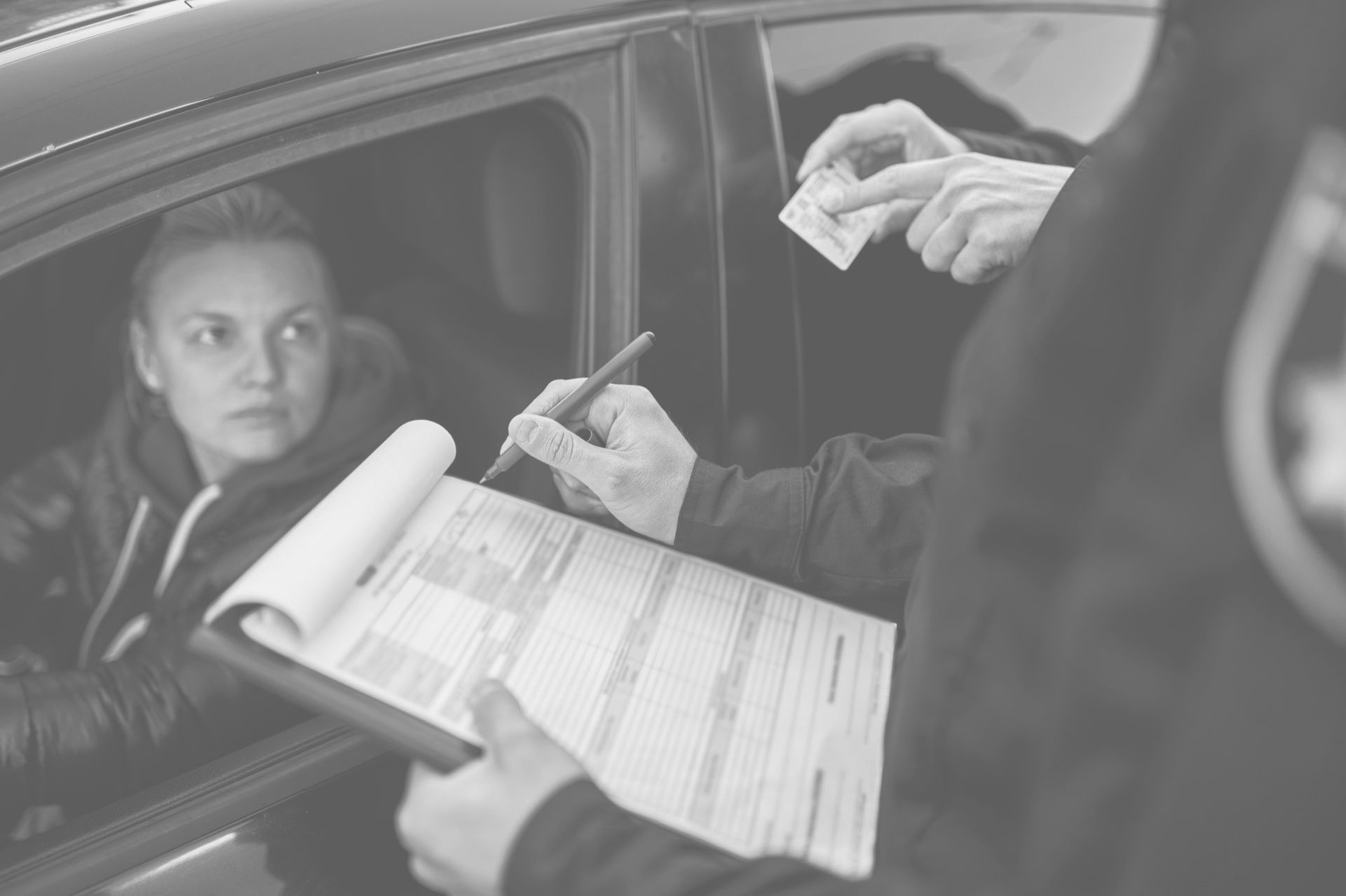Legal Alcohol Limit In Texas: DWI Laws and BAC Explained
Written by Law Office of Rolando Cantú, reviewed by Rolando Cantú
Legal Alcohol Limit In Texas: DWI Laws and BAC Explained
Driving in Texas requires you to know the state’s laws on drinking and its effect on driving ability. The Texas legal limit is a number you should know because going over it can mean big legal trouble – fines, license suspension, and even jail time. Here we’ll break down the limits, how it’s measured, the penalties, and how different things affect your blood alcohol concentration (BAC).
- What is the Texas Legal Limit?
- Blood Alcohol Concentration: How It’s Measured?
- Legal Limit for Commercial Drivers
- Legal Limit for Underage Drivers
- How Alcohol Affects Your Driving
- What Affects Your Blood Alcohol Content
- Penalties for Driving Over the Texas Legal Alcohol Limit
- Open Container Laws in Texas
- Can You Get Arrested for a DWI Under the Legal Limit?
- DWI Attorney in Texas
- Drive Smart and Stay Safe
What is the Texas Legal Limit?
In Texas law, the legal blood alcohol concentration for drivers 21 and older is a blood alcohol concentration (BAC) of 0.08%. That means if your BAC is at or above that you are legally intoxicated and can be charged with driving while intoxicated (DWI) (a class B misdemeanor).
But here’s the thing – even if your BAC is below 0.08% you can still be charged with a DWI if the officer thinks your ability to drive is impaired due to alcohol or drugs. For commercial drivers, the limit is 0.04% and for drivers under 21, it’s zero tolerance – meaning any detectable amount of alcohol in your system can get you a DUI charge.
Blood Alcohol Concentration: How It’s Measured?
Blood alcohol concentration is the percentage of alcohol in your blood. When you drink alcohol it absorbs into your blood and affects your body and brain in many ways. To measure your blood alcohol level, law enforcement officers use either a breathalyzer test or a blood test. If it results in high blood alcohol content, you could be facing a DWI charge in Texas.
The breathalyzer is the most common because it’s quick and non-invasive but it’s an estimate of your BAC. A blood test is more accurate but requires a search warrant because it’s invasive.
In Texas refusing a breath test or blood alcohol test will result in an automatic license suspension under the state’s “implied consent” laws. That means by getting a driver’s license you’ve agreed to take these tests if you’re stopped for a DWI. Refusing a test doesn’t mean you’ll get off scot-free– it may worsen things.
Legal Limit for Commercial Drivers
Commercial drivers (those with a Commercial Driver’s License or CDL) have stricter laws than regular drivers about drunk driving. The legal BAC limit for them is 0.04%. Commercial drivers operate larger, heavier motor vehicles or transport hazardous materials so the law holds them to a higher standard.
If a commercial driver is convicted of a DWI, it affects not only their ability to drive a commercial motor vehicle but also their driving privileges. Even if they weren’t working at the time of the offense the conviction can result in the suspension or revocation of their CDL.
Legal Limit for Underage Drivers
For drivers under 21 Texas has a zero-tolerance policy on alcohol. Since it’s illegal for anyone under 21 to consume alcohol (with limited exceptions such as under parental supervision at home) the law is even stricter for younger drivers. Even a BAC of 0.001% can get you a DUI charge. Underage drinking and driving in Texas can mean fines, community service, alcohol education courses, and license suspension even for a first offense.
This zero tolerance is designed to stop underage drinking and protect the young and vulnerable from the dangers of alcohol and driving.
How Alcohol Affects Your Driving
Alcohol impairs your judgment, reaction time, and coordination all of which are necessary for safe driving. While you might think you’re “okay to drive” after one or two drinks the truth is even small amounts of alcohol can affect your ability to control a vehicle. Here are some of the most common effects:
- Slowed reaction time: Alcohol slows your reflexes so you can’t react quickly to changes on the road.
- Impaired judgment: Alcohol reduces your ability to make good decisions like when to brake or turn.
- Loss of coordination: After drinking your motor skills are impaired so you might swerve, speed or not be able to control your car.
What Affects Your Blood Alcohol Content
Many things affect how fast your BAC rises after drinking. It’s not just how much you drink but:
- Body weight:
Heavier people have a lower BAC after drinking the same amount of alcohol as someone lighter.
- Gender:
Women get to a higher BAC faster than men because of body composition differences.
- Metabolism:
Some people metabolize alcohol faster than others so it leaves their system quicker.
- Food intake: Drinking on an empty stomach will get you a higher BAC than drinking after eating a full meal.
- Hydration levels: Being dehydrated will raise your BAC as alcohol is absorbed faster into your bloodstream when you’re low on water.
Penalties for Driving Over the Texas Legal Alcohol Limit
A DWI in Texas is no joke and the penalties are severe. For a first-time offender with a BAC of 0.08% or higher the penalties are:
- Fines up to $2,000
- Jail time 3 to 180 days
- License suspension up to 1 year
- Mandatory alcohol education classes
If your BAC is 0.15% or higher or this is your second or third DWI the penalties get even worse. Fines can go up to $10,000, you can get up to 10 years in prison and your license can be revoked for multiple years. And if there’s a child in the vehicle you can get felony charges regardless of your BAC.
Open Container Laws in Texas
In Texas, it’s illegal to have an open container of alcohol in the passenger area of a vehicle whether you’re driving or parked. Violating this law is a Class C misdemeanor and can get you a fine of up to $500. This applies even if your BAC is under 0.08%. For example, having a partially consumed bottle of alcohol within reach can get you in trouble especially if the officer thinks you’ve been drinking and driving.
Related: Evaluating the Impact of To-Go Alcohol Sales on Open Container Laws
Can You Get Arrested for a DWI Under the Legal Limit?
Yes, you can still get arrested for DWI even if your BAC is under 0.08%. Officers can charge you with impaired driving if they see signs of intoxication such as erratic driving, slurred speech, or a failed field sobriety test. In Texas impairment doesn’t always mean a high BAC it means your ability to drive safely is compromised regardless of the exact alcohol level.
That’s why relying on "rules of thumb" like "one drink per hour" to determine if you’re safe to drive is risky. Everyone’s body reacts differently to alcohol and many variables affect BAC such as fatigue, medication, and emotional state.
DWI Attorney in Texas
If you’ve been arrested for a DWI you need to get legal help ASAP. An experienced criminal defense attorney can help you through the process whether it’s negotiating with the prosecutors, challenging the evidence against you, or fighting to keep your license.
If you’re in McAllen or the surrounding areas The Law Office of Rolando Cantu specializes in DWI cases and can give you the support and guidance you need during this tough time. A conviction can have long-lasting consequences including higher insurance rates, loss of employment, and difficulty getting loans or housing. Don’t let a mistake ruin your life. Contact a trusted McAllen criminal lawyer to review your case and explore your options.
Drive Smart and Stay Safe
Now that you know the legal alcohol limit in Texas it’s time to drive smart and stay safe. While the law allows for some alcohol consumption before driving the safest choice is to not drink at all when you know you’ll be driving. The risks are too high.
If you or a loved one has been charged with a DWI don’t wait. Contact The Law Office of Rolando Cantu to talk to us about your case and get the legal help you need. A DWI conviction can change your life but with the right attorney by your side, you can work towards the best possible outcome for you.














